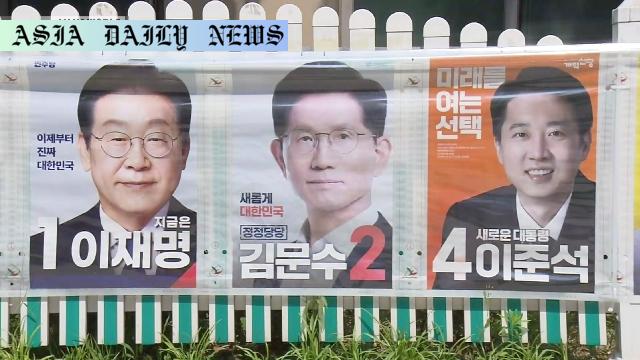South Korea’s election sees final pitches from leading candidates Lee Jae-myung and Kim Moon-soo amidst questions of democracy and power.
South Koreans will elect a new leader on Tuesday amidst concerns over democracy and power transitions.
Frontrunner Lee Jae-myung is focused on countering conservative power, while Kim Moon-soo stresses checks and balances.
Critics highlight a lack of policy detail in the campaigns, with debates dominated by attacks and rhetoric.

South Korea’s Election Day: A High Stakes Moment
South Korea’s political scene is abuzz as the nation prepares for a significant election on Tuesday. Citizens are poised to select their new president just months after the impeachment of former President Yoon Suk-yeol, who faced backlash for imposing martial law. The stakes are incredibly high as the race narrows to two primary contenders: Lee Jae-myung of the opposition Democratic Party and Kim Moon-soo of the ruling People Power Party. This election has been characterized by fierce campaigning, with both candidates making their final persuasive efforts on Monday. Lee Jae-myung centered his campaign in urban zones like Seoul and Gyeonggi Province, emphasizing the dangers posed by maintaining the current government. He has warned against a collapse of democracy, pointing to the controversial martial law imposed under the ruling party’s administration. Conversely, Kim Moon-soo toured a wide array of regions, from Jeju Island to the capital, arguing for political balance and accusing Lee of aiming to monopolize power.
Challenges in the South Korean Political Landscape
While South Korea’s political landscape usually mirrors policy-driven debates, critics note a significant deviation in this election. Instead of detailed discussion on governance, economic reform, or national security, both candidates have reportedly relied on rhetorical strategies emphasizing fear of the other party. This trend has left many voters concerned about the lack of clarity regarding potential administrative priorities and meaningful governance. Early voting turnout reached a promising 34.74%, the second-highest level in previous national elections, showcasing voter engagement but also reflecting the polarized nature of the campaigns. Ballots will be cast from 6 a.m. to 8 p.m. on election day, with results expected shortly after. Analysts predict potential challenges post-election, as the opposition currently occupies a two-thirds majority in the Korean parliament. This divide could lead to legislative gridlock regardless of who wins the presidential seat.
A Critical Election Amidst Calls for Democracy and Accountability
This election extends well beyond policy implications, as it symbolizes a key test for South Korean democracy. The controversial imposition of martial law under the previous administration continues to cloud the nation’s political climate, potentially swaying voters either for or against the ruling party. Lee Jae-myung’s campaign addresses these anxieties, calling for accountability and systemic overhaul, while Kim Moon-soo’s approach highlights the importance of preventing a perceived authoritarian consolidation under Lee’s leadership. South Korea’s democratic foundations remain robust, but this election could redefine its power structures and policy direction for years to come. Whichever path the electorate chooses, the government will face heightened scrutiny, both domestically and from the international community.
Commentary
Importance of Engaging in South Korea’s Democratic Process
The impending presidential election in South Korea is not just a monumental event for the nation but also a significant case study for observers of democracy worldwide. The election comes off the back of seismic national events, demonstrating both the resilience and challenges of the South Korean political system. The stakes are particularly high, with issues centering on democracy itself.
The Role of Policy in Political Discourse
Unfortunately, the campaign period has been marked more by heated rhetoric and political accusations than by constructive policymaking. This lack of discourse on critical issues such as economic recovery post-COVID, climate change, and technological advancement leaves many unanswered questions. A more in-depth focus on concrete policies would undoubtedly benefit voters and further strengthen the democratic landscape.
Future Questions for South Korea’s Political Framework
Regardless of the election’s outcome, the next administration will face immediate challenges, including potential gridlock due to a divided parliament. This reality highlights the importance of forging unity and focusing on the national interest. If South Korea’s democracy is to thrive, leaders must not only win elections but also govern effectively, ensuring long-term stability and progress.


